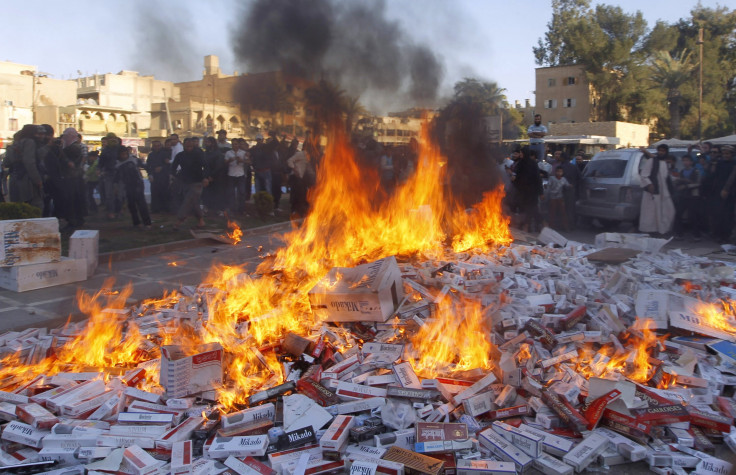How ISIS Realigns The Middle East

The self-styled Islamic State of Iraq and Syria has, seemingly overnight, emerged as a major player in the Middle East. On Wednesday, fresh from their stunning capture of the major Iraqi city of Mosul, ISIS forces went on to take Tikrit, a city of 200,000 and the birthplace of former Iraqi dictator Saddam Hussein. The radical Sunni Muslim group now controls a vast area of northwest Iraq and eastern Syria, and has rendered the border between the two countries practically obsolete.
ISIS also has acquired the ability to sell oil -- produced at wells in both Syria and Iraq -- on the international market through middlemen. A group that once ran afoul of Osama bin Laden for being too radical is now, according to Douglas Olivant and Brian Fishman, “more akin in organization and power to the Taliban of the late 1990s than al Qaeda.”
This development has unsettled countries throughout the Middle East. For Iran, the most powerful Shi'a Muslim state, the emergence of ISIS threatens the viability of the government in Baghdad, where Nouri al-Maliki, a Shi'a, has served as prime minister since 2006.
Iran’s rival Saudi Arabia, which views radical Islamist movements with suspicion, has captured and killed ISIS fighters inside the kingdom. The embattled Syrian regime of Bashar Assad has seen one of its fiercest opposition groups strengthened and enlarged. And the United States, which helped reconstruct and train the Iraqi army at great cost in both money and lives, now must deal with the further deterioration of a country it once had proclaimed a success when it left after seven years of occupation.
In an unlikely way, ISIS has managed to unite Washington, Damascus, Tehran and Riyadh against it. But that doesn’t mean that the four countries will work together to dislodge the radical group -- or will have much of an ability to do so.
The Islamic Republic of Iran has long provided military support to Assad in Syria through proxy forces like the Lebanese Hezbollah, and is a close ally of al-Maliki’s Islamic Dawa party government in Baghdad. But Daveed Gartenstein-Ross of the Foundation for Defense of Democracies, a Washington think tank, thinks Tehran is likely to have an understated role in repelling ISIS.
“We’re not going to see an Iranian ground invasion, we won’t see any explicitly Iranian military hardware used, and we won’t see Iranian planes and artillery,” he said.
An American intervention is even less likely. Since withdrawing its last troops from the country in 2011, leaving behind a “sovereign, stable, and self-reliant Iraq,” the Obama administration has shown a strong reluctance for entangling the U.S. in Middle Eastern conflicts, and, nearly three years after calling for Assad to vacate Syria’s presidency, Washington continues to refuse lethal aid to Syrian opposition groups. Saudi Arabia, too, has good reason to stay put: Should ISIS manage to disrupt the oil supply, Riyadh would benefit from higher oil prices.
Without outside intervention, could ISIS succeed in overthrowing the Maliki regime in Baghdad? Hardin Lang, a Middle East expert at the Center for American Progress, views this possibility as a long shot. ISIS’ radical Sunni fighters have thrived in areas with a strong Sunni majority, “but Baghdad and its surrounding areas represents a different demographic pocket,” he said. Nevertheless, the group’s ability to maintain control in major cities like Fallujah for several months indicates that ISIS has significant staying power.
For the rest of the region, this development is unsettling. ISIS may destabilize nearby states like Lebanon and Jordan, whose Sunni populations would be susceptible to the group’s recruitment efforts. In an article published in Foreign Policy in April, Lang, along with his colleagues Brian Katulis and Mokhtar Awad, profiled a Jordanian cleric who dispatched young men on suicide missions in Syria.
Nevertheless, the story of ISIS’ emergence may have more to do with state failure than with the traditional religious divide in the region. “State collapse produces sectarianism -- not the other way around," James Fromson of the Middle East Institute wrote in the National Interest.
© Copyright IBTimes 2024. All rights reserved.





















